Discover Explain It to Me
Explain It to Me

Explain It to Me
Author: Vox
Subscribed: 59,717Played: 1,761,180Subscribe
Share
© 2019 Vox Media, Inc. All Rights Reserved
Description
Should I buy a house? Why do I say “like” so much? Should Gen Z bother to save for retirement?
Explain It to Me is the hotline for the issues that matter to your life. Send us your questions about health, personal finance, relationships, and anything else that matters to you. Host Jonquilyn Hill will take you on a journey to find the answers, whether it's to the halls of Congress or the local bar. You’ll get the answers you were looking for, and sometimes ones you didn't expect — and always with a dose of humor. New episodes every Sunday. Part of Vox and the Vox Media Podcast Network.
789 Episodes
Reverse
Our brain constructs the world we hear, see, and feel — but tinnitus shows how that superpower can backfire.
This episode is made in collaboration with Vox's Unexplainable. Hear their series on sound here.
This episode was produced by Avishay Artsy, edited by Jenny Lawton, fact-checked by Melissa Hirsch, engineered by David Tatasciore, and hosted by Jonquilyn Hill. Photo by Astrid Stawiarz/Getty Images for the Hearing Health Foundation.
If you have a question, give us a call on 1-800-618-8545 or send us a note here. Listen to Explain It to Me ad-free by becoming a Vox Member: vox.com/members.
Learn more about your ad choices. Visit podcastchoices.com/adchoices
If AI handles all our busy work and optimizes our resources, it may also give us the one thing there never seems to be enough of: time.
This episode was produced by Hady Mawajdeh, edited by Jenny Lawton, fact-checked by Melissa Hirsch, engineered by David Tatasciore, and hosted by Jonquilyn Hill. Photo by Simona Granati - Corbis/Corbis via Getty Images.
This story was supported by a grant from Arnold Ventures. Vox had full discretion over the content of this reporting.
If you have a question, give us a call on 1-800-618-8545 or send us a note here.
Listen to Explain It to Me ad-free by becoming a Vox Member: vox.com/members.
Learn more about your ad choices. Visit podcastchoices.com/adchoices
Turns out those personality tests you’re taking online are all wrong.
This episode was produced by Danielle Hewitt, edited by Jenny Lawton, fact-checked by Melissa Hirsch, engineered by Patrick Boyd and hosted by Jonquilyn Hill. Image credit Khosrork/Getty Images.
If you have a question, give us a call on 1-800-618-8545 or send us a note here.
Listen to Explain It to Me ad-free by becoming a Vox Member: vox.com/members.
Learn more about your ad choices. Visit podcastchoices.com/adchoices
How this big, lean bird became the staple of the most American of meals.
This episode was produced by Ariana Aspuru, edited by Jenny Lawton, fact-checked by Melissa Hirsch, engineered by Adriene Hill and hosted by Jonquilyn Hill. Photo of the National Thanksgiving turkey by Andrew Harnik/Getty Images.
If you have a question, give us a call on 1-800-618-8545 or send us a note here.
Listen to Explain It to Me ad-free by becoming a Vox Member: vox.com/members.
Learn more about your ad choices. Visit podcastchoices.com/adchoices
Housing prices aren't coming down, and that's challenging us to redefine the American dream. Maybe renting isn't so bad?
This story was supported by a grant from Arnold Ventures. The episode was produced by Miles Bryan and Kelli Wessinger, edited by Jenny Lawton, fact-checked by Melissa Hirsch, engineered by Patrick Boyd and Adriene Lilly, and hosted by Jonquilyn Hill. Image of homes in Hercules, California by David Paul Morris/Bloomberg via Getty Images.
If you have a question, give us a call on 1-800-618-8545 or send us a note here. Listen to Explain It to Me ad-free by becoming a Vox Member: vox.com/members.
Learn more about your ad choices. Visit podcastchoices.com/adchoices
It’s open enrollment season, and new health insurance premiums are causing sticker shock around the country. So how do you pick a health care plan that won’t break the bank?
This episode was produced by Avishay Artsy and Danielle Hewitt, edited by Jenny Lawton, fact-checked by Melissa Hirsch, engineered by Adriene Lilly and hosted by Jonquilyn Hill. Image credit Stefani Reynolds/Bloomberg via Getty Images.
If you have a question, give us a call on 1-800-618-8545 or send us a note here. Listen to Explain It to Me ad-free by becoming a Vox Member: vox.com/members.
Learn more about your ad choices. Visit podcastchoices.com/adchoices
You know those annoying scam texts offering an easy, remote job? We find out how they work, why they're so ubiquitous and the dark world behind them.
This episode was produced by Peter Balonon-Rosen and Ariana Aspuru, edited by Jenny Lawton with help from Jolie Myers, fact-checked by Melissa Hirsch, engineered by Adriene Lilly and Brandon McFarland, and hosted by Jonquilyn Hill. Image credit Sebastian Kahnert/picture alliance via Getty Images.
If you have a question, give us a call on 1-800-618-8545 or send us a note here.
Listen to Explain It to Me ad-free by becoming a Vox Member: vox.com/members.
Learn more about your ad choices. Visit podcastchoices.com/adchoices
Patients and doctors both are turning to AI for help with diagnosing ailments and managing chronic issues. Should we trust it?
This episode was produced by Hady Mawajdeh, edited by Jenny Lawton, fact-checked by Melissa Hirsch, engineered by Adriene Lily and Brandon McFarland, and hosted by Jonquilyn Hill. Image credit Vithun Khamsong/Getty Images.
If you have a question, give us a call on 1-800-618-8545 or send us a note here. Listen to Explain It to Me ad-free by becoming a Vox Member: vox.com/members.
Learn more about your ad choices. Visit podcastchoices.com/adchoices
We tell the stories of three ingredients that can shine outside the US: beef, bread, and tomatoes.
This episode was produced by Denise Guerra and Peter Balonon-Rosen, edited by Megan Cunnane, fact-checked by Melissa Hirsch, engineered by Adriene Lilly and hosted by Jonquilyn Hill. Photo by Creative Touch Imaging Ltd./NurPhoto via Getty Images.
If you have a question, give us a call on 1-800-618-8545 or send us a note here. Listen to Explain It to Me ad-free by becoming a Vox Member: vox.com/members.
Learn more about your ad choices. Visit podcastchoices.com/adchoices
What we know about early childhood and screens, including a surprising argument for introducing tech at a tender age.
This episode was produced by Miles Bryan, edited by Megan Cunnane, fact-checked by Melissa Hirsch, engineered by Adriene Lilly and Patrick Boyd, and hosted by Jonquilyn Hill. Photo by CHARLY TRIBALLEAU/AFP via Getty Images.
You can find Dr. Jenny Radesky and her colleagues’ tool kit for parents here.
If you have a question, give us a call on 1-800-618-8545 or send us a note here. Listen to Explain It to Me ad-free by becoming a Vox Member: vox.com/members. New Vox members get $20 off their membership right now.
Learn more about your ad choices. Visit podcastchoices.com/adchoices
Society teaches us empathy is a good thing. But some are now saying the opposite, and science is complicating our assumptions too.
This episode was produced by Avishay Artsy, edited by Megan Cunnane, fact-checked by Melissa Hirsch, engineered by Adriene Lilly and hosted by Jonquilyn Hill. Image credit Olga Pankova/Getty Images.
If you have a question, give us a call on 1-800-618-8545 or send us a note here. Listen to Explain It to Me ad-free by becoming a Vox Member: vox.com/members. New Vox members get $20 off their membership right now.
Learn more about your ad choices. Visit podcastchoices.com/adchoices
Young men are more interested in becoming parents than young women are, and there's a growing number of single dads by choice. A look at modern fatherhood.
This episode was produced by Devan Schwartz, edited by Megan Cunnane, fact-checked by Melissa Hirsch, engineered by Adriene Lilly and hosted by Jonquilyn Hill.
Thanks to Jonquilyn Hill for sharing a family photo for our episode image today. Image of dad John and baby Jonquilyn courtesy of the Hill family.
If you have a question, give us a call on 1-800-618-8545 or send us a note here. Listen to Explain It to Me ad-free by becoming a Vox Member: vox.com/members.
Learn more about your ad choices. Visit podcastchoices.com/adchoices
Americans seem to be getting ruder. Are our attempts at making ourselves better actually making us worse?
This episode was produced by Avishay Artsy, edited by Miranda Kennedy, fact-checked by Melissa Hirsch and Isabelle Lichtenstein, engineered by Matthew Billy and hosted by Jonquilyn Hill. Image: Francesco Carta Fotografo/Getty Images.
If you have a question, give us a call on 1-800-618-8545 or send us a note here. Listen to Explain It to Me ad-free by becoming a Vox Member: vox.com/members.
Learn more about your ad choices. Visit podcastchoices.com/adchoices
Hollywood has always made money from vampires and brain-eating zombies. But this year's a record-breaker thanks to sequels, hilariously unlikely creators, and pure thrills.
This episode was produced by Denise Guerra and Hady Mawajdeh, edited by Miranda Kennedy, fact-checked by Melissa Hirsch, engineered by Adriene Lilly and hosted by Jonquilyn Hill.
A detail from The Conjuring Museum Of The Occult based on "The Conjuring" films. Photo by David Benito/Getty Images.
If you have a question, give us a call on 1-800-618-8545 or send us a note here. Listen to Explain It to Me ad-free by becoming a Vox Member: vox.com/members.
Learn more about your ad choices. Visit podcastchoices.com/adchoices
From #rushtok to country music, American culture is getting more and more southern.
This episode was produced by Denise Guerra, edited by Miranda Kennedy, fact-checked by Melissa Hirsch, engineered by Matthew Billy and Adriene Lilly and hosted by Jonquilyn Hill. Photo of a Beyonce fan waiting to see her perform in LA by Rashida Zagon/For The Washington Post via Getty Images.
If you have a question, give us a call on 1-800-618-8545 or send us a note here. Listen to Explain It to Me ad-free by becoming a Vox Member: vox.com/members.
Learn more about your ad choices. Visit podcastchoices.com/adchoices
Americans are flocking to gyms and fitness classes. It wasn't always that way.
This episode was produced by Hady Mawajdeh, edited by Miranda Kennedy with help from Naureen Khan, fact-checked by Melissa Hirsch, engineered by Andrea Kristinsdottir and hosted by Jonquilyn Hill. Photo of an outdoor group fitness class by ANDREW CABALLERO-REYNOLDS/AFP via Getty Images.
If you have a question, give us a call on 1-800-618-8545 or send us a note here. Listen to Explain It to Me ad-free by becoming a Vox Member: vox.com/members.
Learn more about your ad choices. Visit podcastchoices.com/adchoices
We track our steps and our sleep, guzzle supplements and protein shakes, and even inject hormones – all in the name of wellness.
This episode was produced by Hady Mawajdeh, edited by Naureen Khan and Miranda Kennedy, fact-checked by Melissa Hirsch, engineered by Andrea Kristinsdottir, and hosted by Jonquilyn Hill. Photo by Jeffrey Greenberg/Universal Images Group via Getty Images.
If you have a question, give us a call on 1-800-618-8545 or send us a note here. Listen to Explain It to Me ad-free by becoming a Vox Member: vox.com/members.
Learn more about your ad choices. Visit podcastchoices.com/adchoices
Americans are investing billions in their health and wellness. What good do all these green powders and costly club memberships actually do?
This episode was produced by Hady Mawajdeh, edited by Miranda Kennedy, fact-checked by Melissa Hirsch, engineered by Matthew Billy, and hosted by Jonquilyn Hill. Image of a guest floating in a saline sensory deprivation pool at the Chiva Som Health Resort by Peter Charlesworth/LightRocket via Getty Images.
If you have a question, give us a call on 1-800-618-8545 or send us a note here. Listen to Explain It to Me ad-free by becoming a Vox Member: vox.com/members.
Learn more about your ad choices. Visit podcastchoices.com/adchoices
The US is well behind much of the world in building passenger rail, especially high-speed trains. But we do have one major advantage.
This episode was produced by Devan Schwartz, edited by Naureen Khan, fact-checked by Melissa Hirsch, engineered by Patrick Boyd with help from Andrea Kristinsdottir and hosted by Jonquilyn Hill. Photo by Robert Alexander/Getty Images.
If you have a question, give us a call on 1-800-618-8545 or send us a note here. Listen to Explain It to Me ad-free by becoming a Vox Member: vox.com/members.
Learn more about your ad choices. Visit podcastchoices.com/adchoices
From raising the tipped minimum wage to "no tax on tips," we look at the challenges of remaking tipped work.
This episode was produced by Peter Balonon-Rosen, edited by Miranda Kennedy, fact-checked by Melissa Hirsch, engineered by Patrick Boyd and hosted by Jonquilyn Hill. Photo by Lindsey Nicholson/UCG/Universal Images Group via Getty Images.
If you have a question, give us a call on 1-800-618-8545 or send us a note here. Listen to Explain It to Me ad-free by becoming a Vox Member: vox.com/members.
Learn more about your ad choices. Visit podcastchoices.com/adchoices






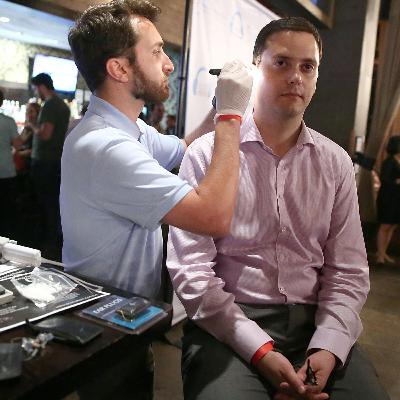

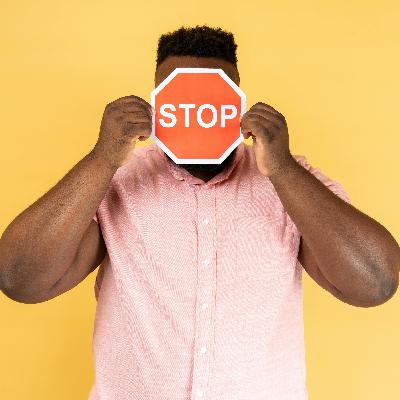
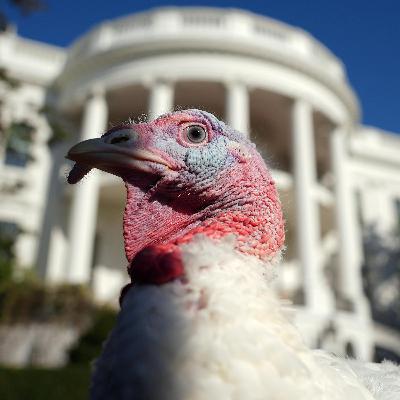
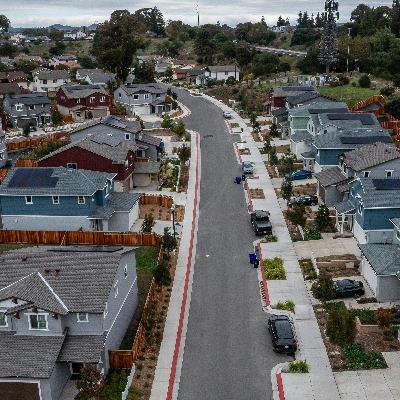
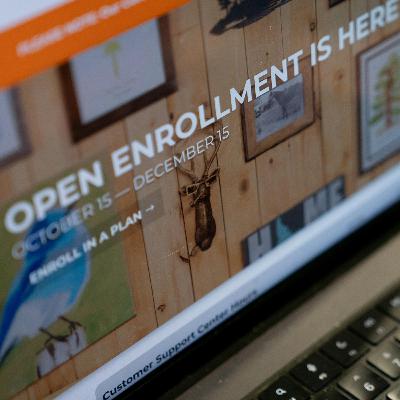





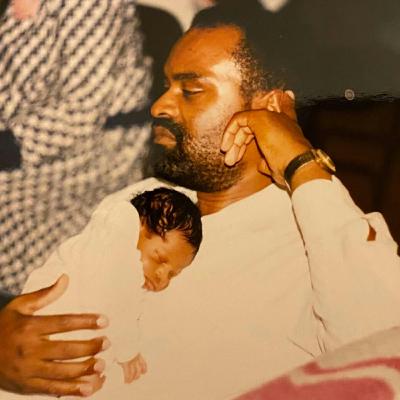

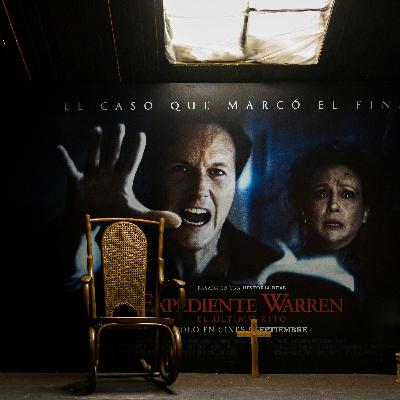


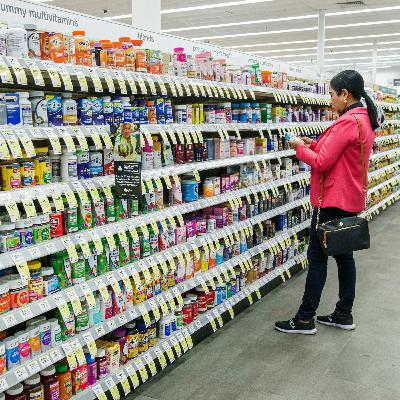

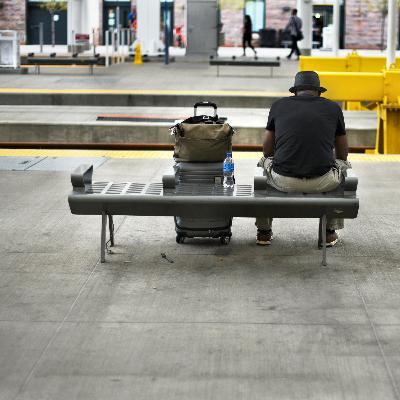
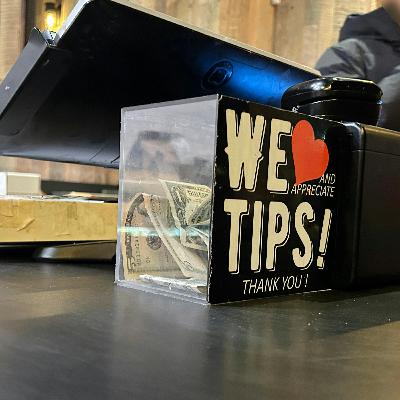



I signed up for SS one year ago and started receiving SS this January Who ever said they could get a hold of SS in 15 min before was lying. I did find out if you call at 8am it’s far less of a wait.
theres a serious lack of critical thinking 9n your part if youre having a guest tell you they had to quit their ǰob because car headlights were "emotionally disturbing him" DURING THE DAY and youre not even pushing back or questioning that insane assertion at all. unsubscribed.
If you're a gastropod, you're a slug, snail, mollusk. A gastrophile perhaps what was meant. :-)
stopped listening when the guy used the term "playing spoiler" on a general interest podcast without explaining what it means.
This episode is really educational.MassShooters
good
I'm truly not one of those nitpicky people who has the propensity to complain about everything, but the vocal fry of the guest made this conversation absolutely unbearable to listen to. I couldn't make it more than ten minutes before I gave up.
Please stop using the term "birthing person" until you cite me a case where a man gave birth.
One of the most disingenuous political podcasts out in leftist media
fuck the new York times
"I would never think of enlisting in the Army. I would rather live, not die." what an arrogant, ignorant, and snobbish think to say. I have served in the Army for almost 20 years and I too would rather live than die. That is not what differentiates those who choose to serve from those that do not. I listen to The Weeds podcasts to hear intelligent conversations about major issues but that was some sophomoric bullshit.
One of my favorite episodes so far
if black kids are not taking advance courses who's fault is that? not all kids black & white can take advance courses that being said education starts day one. if a kid is failing in school who needs to take charge? the parents.
I don't know any school.that doesn't teach slavery. or teaches whites are better than black people. disagree? show me. we have class privilege over white privilage. why doesn't one black leader come out, write exactly what CRT is, put it on paper & send out press releases? take questions & be open when people disagree with you? people fear change. people do not want to be blamed for someone else failures when they 1. they are having a hard time themselves 2. none of their relatives owned slaves or were slaves. 3. black people want us to listen to them but they refuse to listen to whites, it's ok to call whites names & reduce them to a label you. not vise versa
The most racist people I know voted for Obama. They had hope for change & didn't see a black man. They saw that guy they worked with who was a work friend. Then Fox news went into overdrive.
Fascinating conversation
read this title having not checked the news in two hours and it nearly gave me a heart attack. jeeze.
I'm really confused. how is the argument that we should put aside or differences to take down the powerful, wealthy elites not a class argument?
This podcast contained the best argument I've actually heard thus far to actually vote for Biden, rather than simply against Trump, as a leftist. If Biden is actually non-ideological (rather than ideologically neoliberal which idk), and is forced (and also able) to remove the filibuster, the left wing of the party will be in a position to bargain in congress with the dems for real change. there's a number of assumptions there, but none are too, too crazy. it's at least worth thinking about. certainly more than "we can push him left after he gets into office". the outcome looks the same, but this has an actual mechanism by which it could work. so thank you and good job. you've given me more to think about.
it would be great to get reference to some of the statics and Data discussed